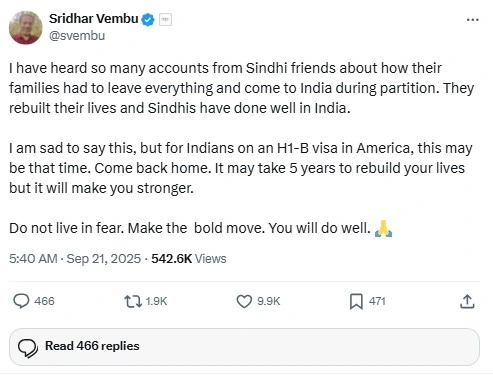(September 26, 2025) Just after the U.S. announced a $100,000 fee for new H-1B visa petitions, Zoho founder Sridhar Vembu posted a tweet reflecting on the resilience of Sindhi families during Partition, using their story as inspiration for Indian H-1B holders facing uncertainty today, many of whom are wondering, ‘what if we have to return back home?’
With that three-part message of history, advice, and hope, Vembu crystallized the idea of the H-1B boomerang, a notion that a U.S. work visa can mark the first leg of a journey that ultimately leads back to India for something greater. Global Indian puts into spotlight five remarkable founders whose journeys from America and Singapore’s tech corridors to India’s innovation hubs bring this full-circle migration story to life.
Sridhar Vembu: From Princeton labs to a village in Tamil Nadu
Raised in a modest household in Tamil Nadu, Sridhar Vembu graduated from IIT Madras before earning a PhD in electrical engineering at Princeton. In the mid-1990s he joined Qualcomm in San Diego, working on cutting-edge wireless technologies and living the archetypal immigrant dream.
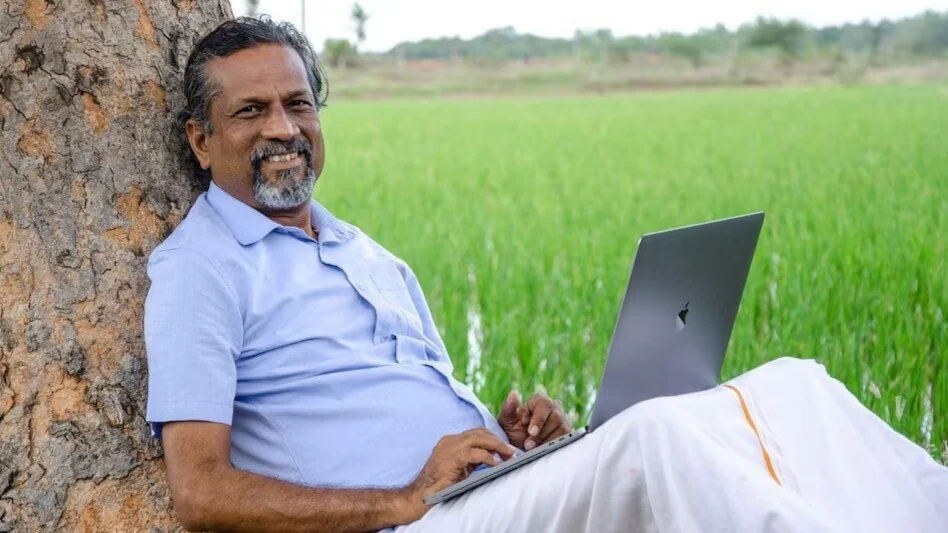
Sridhar Vembu
In 1996 he co-founded a company that got later renamed as Zoho Corporation, refusing venture capital and choosing to grow the business organically. Although Zoho’s main offices were in California and Chennai, Vembu remained deeply connected to his roots. After more than two decades in the United States, he chose in 2019 to return to Tamil Nadu, relocating from the Bay Area to the small village of Mathalamparai, and moving Zoho’s operations there too. The decision surprised many in the tech world, but for Vembu it was the fulfillment of a plan long in the making.Today Zoho serves more than 100 million users worldwide and runs much of its operation from a village near Tenkasi, where Vembu champions rural employment and education. His call for H-1B workers to “make the bold move” is not rhetoric rather reflects the life he chose.
Kunal Bahl: Microsoft training, Indian marketplace
Responding to news of the H-1B visa fee hike and the anxiety it caused, entrepreneur Kunal Bahl tweeted: “In 2007, sitting at my desk at Microsoft, I got an email that my H-1B visa was rejected. It was crushing and numbing at that moment, but life-changing eventually when I moved back. To those impacted today, be positive. There is something much bigger and better in store for you.” His journey from a setback abroad to building success back home offers timely inspiration for anyone facing visa uncertainty today.
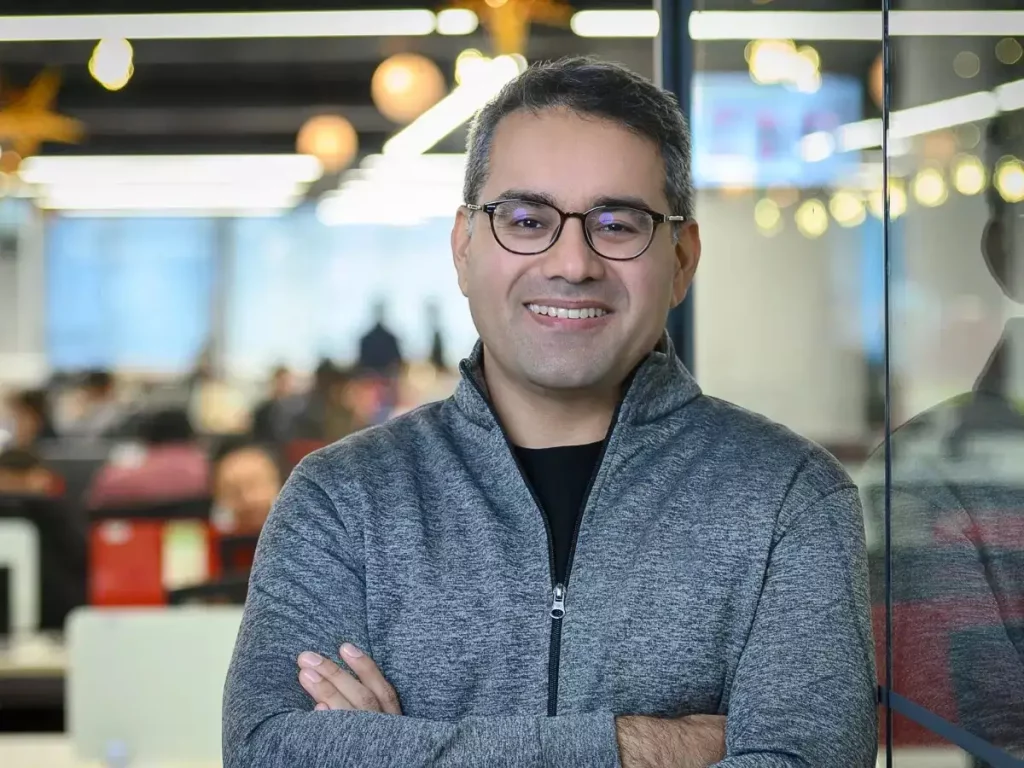
Kunal Bahl
Kunal Bahl grew up in Delhi and enrolled in the University of Pennsylvania’s prestigious Jerome Fisher Program in Management & Technology. After graduation he joined Microsoft in Seattle, immersing himself in large-scale product development and U.S. corporate culture. Frustrated by the H-1B visa rejection and energized by India’s nascent consumer-internet boom, Bahl returned home in 2007. Three years later he and childhood friend Rohit Bansal launched Snapdeal, initially a deals platform that evolved into one of India’s largest e-commerce marketplaces. Backed by global investors like SoftBank and Alibaba, Snapdeal at its peak served millions of customers across the country. Kunal Bahl is also the co-founder of Titan Capital, an early-stage venture capital firm in India that has invested in companies such as Ola, Urban Company, Mamaearth, Credgenics, Shadowfax, Razorpay, Giva, and others.
Manav Garg: Commodities, code, and a strategic return
After earning an MBA from IIFT Delhi, Manav Garg moved to Singapore and built a successful career as a coffee trader, travelling across Southeast Asia and working with major global buyers. But when he noticed that multimillion-dollar trading operations still relied on spreadsheets, he saw an opportunity that would change his path. Determined to create a technology solution, Manav quit his lucrative job and returned to India, even though friends and colleagues urged him to base the venture in Silicon Valley, New York, or London.
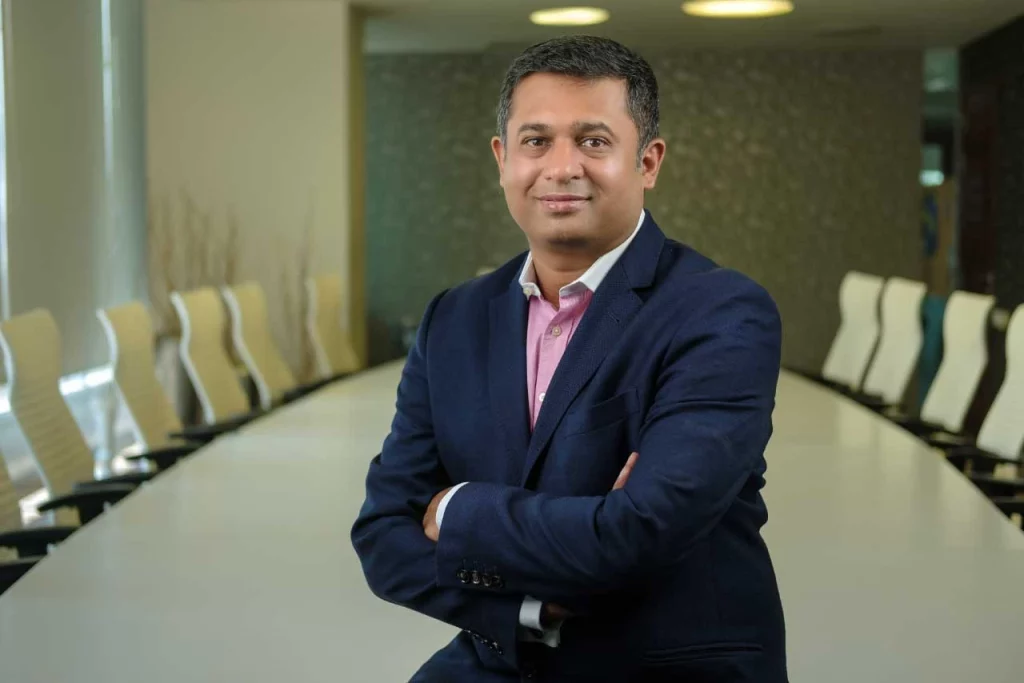
Manav Garg
In 2004 he launched Eka Software Solutions, funding its first year from personal savings before attracting $1 million in seed capital from his former employer, followed by larger rounds from Nexus and Silver Lake. Today Eka provides cloud-based commodity management software to more than 100 global clients including Unilever, Cargill, and Cofco, and competes with industry heavyweights like SAP and FIS, with offices across North America, Europe, the Middle East, Asia, and Australia. Manav’s decision to build from India remains central to his philosophy as he shared in an interview: “I was in Singapore, people said, go to (Silicon) Valley, go to New York, London use their capital available, ‘why (are) you coming to Bangalore? You can outsource from Bangalore!’ I said no, I want to take the challenge up and do something which is very unique from India, which has not been done.”
Abhiraj Singh Bhal: Returning home to build Urban Company
After earning a B.Tech from IIT Kanpur and an MBA from IIM Ahmedabad, Abhiraj Singh Bhal began a high-flying career with the Boston Consulting Group in Singapore. For more than three years he advised Fortune 500 companies across Southeast Asia and Europe, travelling widely and enjoying the rewards of an international posting. Yet the longer he stayed abroad, the stronger the pull of India’s fast-moving digital economy became. By 2011, late-night calls with his IIM friend Varun Khaitan kept circling the same question: India’s internet market is exploding, why keep only talking about it? “How long will we just talk? When will we actually build something of our own?” they asked each other. In 2013 Abhiraj took the leap, quitting his well-paid job and returning home, the first in his family to attempt entrepreneurship.
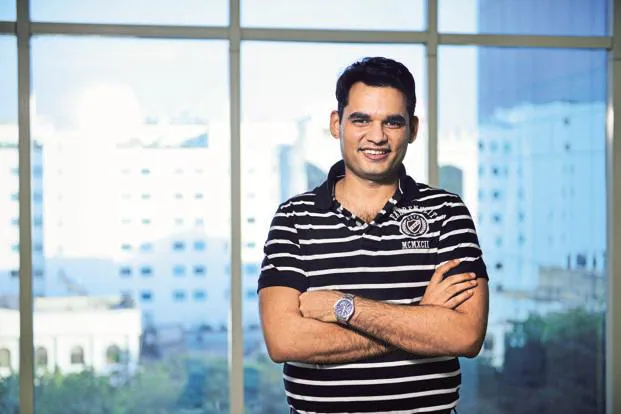
Abhiraj Singh Bahl
Back in India he and Varun experimented with Cinema Box, a service for streaming movies to travellers’ phones. The venture failed, but it hardened their resolve. Observing how disorganised the home-services market was, they joined forces with Raghav Chandra and started testing a simple idea: connect beauticians and photographers with customers through small Facebook ads. The response was immediate. In 2014 the trio launched UrbanClap, rebranded as Urban Company in 2020. From a modest start, it has grown into a multinational platform linking thousands of professionals to millions of households in India, Saudi Arabia, the UAE, Singapore, and the USA, with its headquarters in India. Abhiraj’s choice to leave a secure global career, return to India, and build from the ground up is now a textbook story of reverse migration fueling world-class entrepreneurship.
Arun Nathani: From Chicago engineer to Indian tech leader
In 1987 Arun Nathani left India for a master’s degree at Virginia Tech and later landed a design-engineering job in Chicago. However, after five years the thrill of living in the U.S. faded. “I fit the bill of a regular, next-door Indian who had an extended overseas stint. My favourite weekend hobby was to discuss about returning home. The glamour associated with the land of opportunity had fizzled out for me,” he shared in an interview. By the mid-1990s Nathani acted on that urge to return, moving to Pune to build something of his own just as the internet was taking shape.
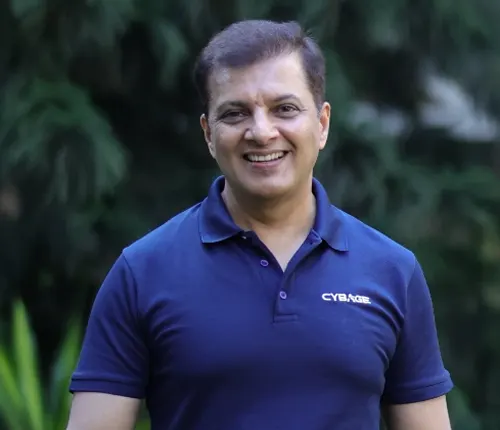
Arun Nathani
In 1995 he launched Cyberage, later renamed Cybage from a three-bedroom apartment with four employees and savings from his U.S. job. His first plan to create a web browser collapsed when Microsoft released Internet Explorer for free, but Nathani refused to quit. Instead, he pivoted to offshore technology services, turning early browser demos into introductions for consulting work. Through the dot-com boom Cybage grew steadily, relying on operational excellence and word of mouth rather than heavy marketing. Today Cybage employs more than 7,200 people and serves over 250 global clients in 150 regions. Nathani’s decision to leave a secure U.S. career and return to India became the foundation of a multinational technology enterprise and a great example of how “coming home” can spark world-class innovation.
Homecoming as a strategy
For these founders, returning was never surrender, rather a calculated bet. Whether from the U.S. or Singapore, they saw India’s vast, fast-growing market and abundant engineering talent as a bigger opportunity than waiting years in a U.S. green-card queue. Their international experience gave them credibility and investor networks, allowing them to hit the ground running once they returned.
Sridhar Vembu’s call for H-1B holders to “make the bold move” captures this reality. Migration, he reminds us, is not a straight line. It can be a circle. Outward for learning, homeward for impact. The H-1B visa may have been designed to draw talent in, but entrepreneurs like Sridhar Vembu, Kunal Bahl, Manav Garg, Abhiraj Singh Bahl, and Arun Nathani show that it can also be a bridge that enriches nations, and that the end of a visa can mark the true beginning of a dream.

